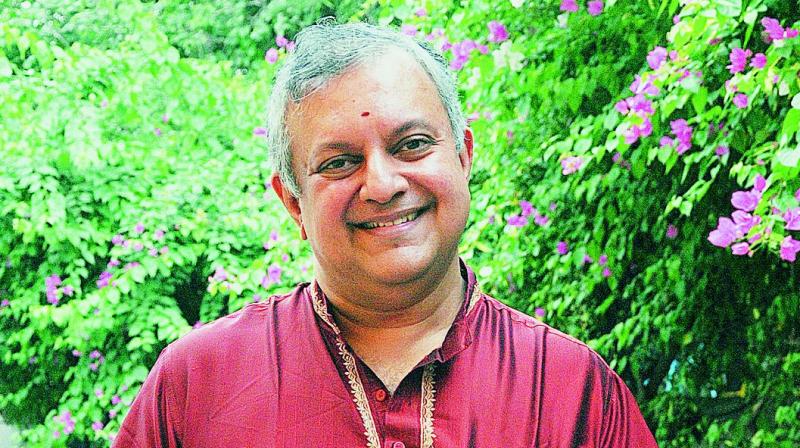A connoisseur of ragas

Royal families are known to be great patrons of art. Many of them are also accomplished in various forms of art but they nurture these passions away from the public gaze. However, Prince Rama Varma of the Royal family of Travancore, who is a direct descendant of the famous Carnatic music composer Maharaja Swati Thirunal, has been sharing his knowledge of music through stage performances and workshops. The royal, who was in Hyderabad to conduct music workshops and give a performance for his 50th birthday, says, “In a matriarchal family like mine, the males are ideally expected to do nothing. Some of my relatives can’t quite digest the fact that I have been gradually creating an identity of my own with my music. I have had my share of both appreciation and criticism.”
Acknowledging the influence of gadgets and internet technology on youngsters, he says, “For the youth, things have grown exponentially during the past few decades. Time will tell how many of the newly emerging talents would be there for the long haul. For me, it’s been a great boon. Internet and platforms like YouTube have been wonderful places for people to showcase their talents and get recognition too.”
He adds, “There is politics in this field too. But social media has given an opportunity to break all these barriers and reach out to music connoisseurs. Other than the many young children who learn from me, I can tell about one permanent student Amrutha Venkatesh, who sings and plays the veena equally well.”
Rama Varma has always been fascinated by Telugu language and the works of many unknown composers from the regions of Telangana and Andhra Pradesh. He says, “I have been blessed with a curious and open mind in general, be it with regard to food, movies, books or music. This mindset has enriched my life immeasurably. The Telugu repertoire is largely due to my association with Carnatic music legend Dr Mangalampalli Balamuralikrishna with whom I spent nearly 18 years. I have been inspired by different genres of music from all over the world,” he says.
Rama Varma uses songs based on Western and folk tunes for his programmes and workshops. “The great Hindustani Maestro Ustad Bade Ghulam Ali Khan used the word Sabrang, meaning ‘all colours’, as his signature. I love this quality, both in music as well as in life in general. Musicians usually make the concerts rather uni-dimensional, which could get a bit tedious. I find these kinds of songs add variety, colour, freshness and vitality to the concerts,” he says.
For Rama Varma, it’s been a 10-year-long association with the city of Hyderabad. “I love singing and teaching here. I try to take care with the enunciation of lyrics in songs that I sing. This pays rich dividends in front of a Telugu-speaking audience who would understand and appreciate the hard work I have put in. I also love the ‘class plus concert format’, wherein some of the children whom I have taught sing along. I have not gone around much in Hyderabad. But I find that the city has been developing really fast over the years,” he adds.
Rama Varma signs off with his goal in life, “To learn more, share more and keep improving, apart from getting more and more people to smile.”
HT02

